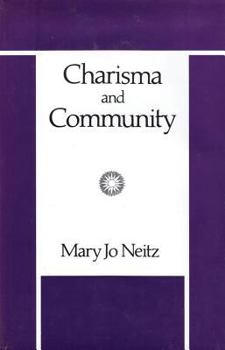Charisma and Community: Study of Religious Commitment Within the Charismatic Renewal
Since Comte, social scientists have tended to assume that modernization, along with a triumphant scientific rationality, has destroyed the legitimacy of religion as a social reality. However, this crisis of legitimacy has never been examined in a setting where religious reality is affirmed. This book fills that gap, exploring the meaning of religious reality in the lives of a group of Catholic Charismatics to discover how belief is created, developed, and maintained.Charismatics, or Neo-Pentecostals, tend to be white, relatively affluent, well educated, and believe that they possess certain gifts including the power of healing, prophesy, discernment of evil spirits, and speaking in tongues. In describing and analyzing this religious minority, the author provides a basis for reevaluating sociological assumptions about religion and modernity. She asks: to what extent can religion define the social world? Are religious values necessarily irrelevant to most institutional contexts? Is religious reality only persuasive in the context of family and primary group relations? What are the tensions between religious realities and other beliefs? Her answers have implications for all ways of making sense of the world, including common sense or science.Neitz situates the Charismatic Renewal in a broader social and historical context. She examines the antecedents of Neo-Pentecostalism in American culture and compares this movement with the secular, self-awareness movement. In so doing she shows what is unique about the Charismatics, and what they share with religious predecessors and members of contemporary secular movements.
Format:Hardcover
Language:English
ISBN:0887381308
ISBN13:9780887381300
Release Date:December 1987
Publisher:Routledge
Length:275 Pages
Weight:1.45 lbs.
Customer Reviews
0 rating





